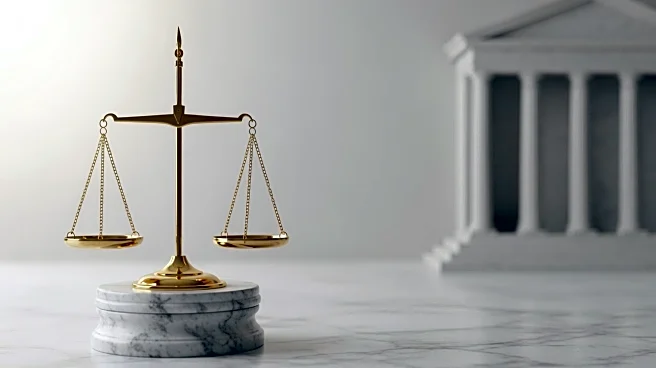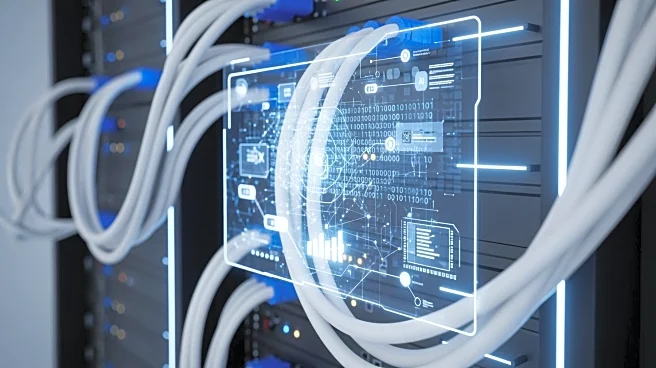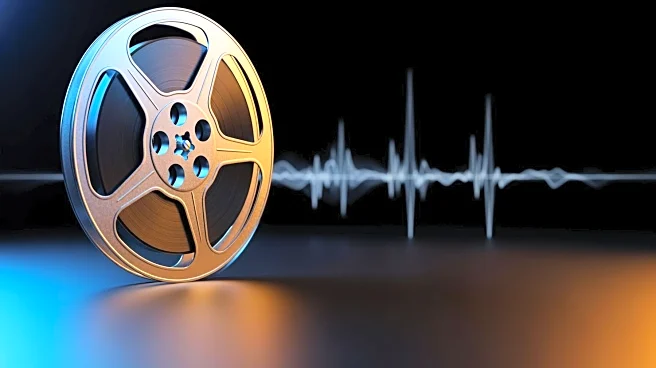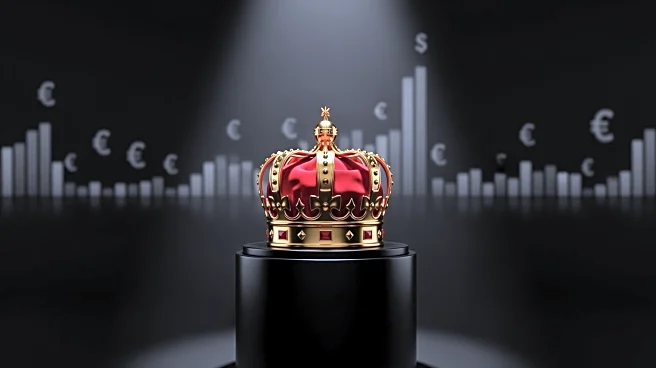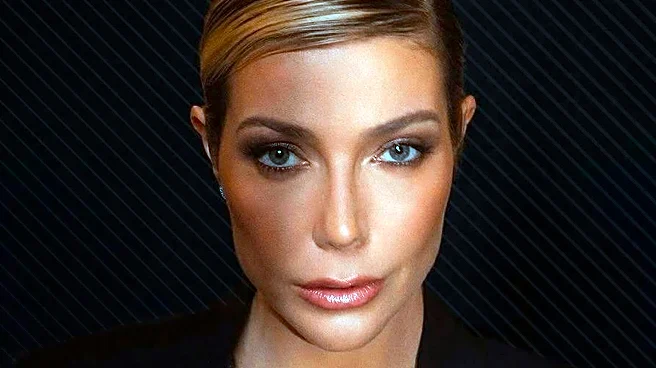What's Happening?
President Trump has issued pardons to several allies involved in efforts to overturn the 2020 election, including Rudy Giuliani. These pardons have sparked debate due to the individuals being charged with state crimes, not federal offenses. Liz Oyer,
a pardon lawyer from the Biden administration, expressed concerns that these actions might be testing the constitutional limits of the presidential pardon power, which traditionally applies only to federal crimes. The pardons could be seen as symbolic or as an attempt to intervene in state court cases, which would be unprecedented.
Why It's Important?
The issuance of pardons for state crimes by President Trump could set a significant precedent, challenging the traditional scope of presidential pardon power. This move may signal to Trump's supporters that crimes committed in his name might be forgiven, potentially encouraging further unlawful actions. The implications for the justice system are profound, as it could undermine state authority and disrupt the balance between federal and state jurisdictions. Legal experts and political analysts are closely monitoring the situation to assess its impact on the rule of law and constitutional governance.
What's Next?
The legal community is expected to scrutinize these pardons, potentially leading to court challenges that could clarify the limits of presidential pardon power. Political leaders and civil society groups may react strongly, debating the ethical and legal ramifications of such actions. The situation could influence future presidential conduct and the relationship between federal and state legal systems. Observers are watching for any further pardons and their potential impact on upcoming elections and political dynamics.
Beyond the Headlines
This development raises questions about the ethical use of presidential powers and the potential for political motivations to influence legal decisions. It highlights the tension between federal authority and state rights, a longstanding issue in U.S. governance. The pardons could also affect public trust in the legal system and the perceived impartiality of justice, with long-term implications for political discourse and civil rights.
